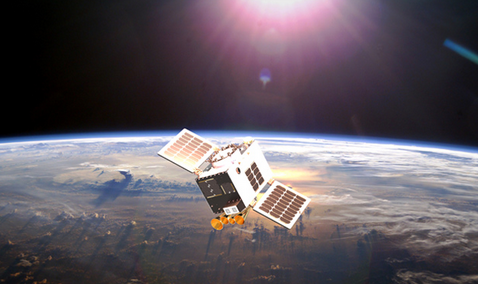Report: LEO driving innovation through collaborations
May 24, 2024

Elon Musk’s SpaceX has just rolled out Starlink Internet services in Indonesia, marking a significant milestone for global connectivity and investment opportunities. This highlights the role of low earth orbit (LEO) satellites in enhancing worldwide communication and driving economic growth. International collaborations aimed at bolstering low-latency data relay services tap into pooled expertise and resources, nurturing an ecosystem conducive to economic advancement and sustainable development, reports GlobalData, the data and analytics company.
Kiran Raj, Practice Head of Disruptive Tech at GlobalData, commented: “By bridging the digital divide and enabling advanced real-time data applications, LEO satellites are becoming essential infrastructure. This transformation fosters collaborative innovation and strengthens economic resilience across industries such as aerospace and defense, telecom, agriculture, and oil and gas. Integrating LEO networks into these industries enhances efficiency and productivity.”
GlobalData’s FutureTech Series report, Internet from Sky: Can LEO Satellites Transform the Future of Connectivity? (Vol. 2), highlights how strategic partnerships and technological advancements are driving the deployment of LEO satellite networks.
In March 2024, US-based companies Viasat and Rocket Lab partnered to showcase on-demand, low-latency data relay services for LEO satellites.
The same month, US-based Telesat and ThinKom Solutions expanded their development partnership to certify ThinKom’s ThinAir Ka2517 antenna for the Telesat Lightspeed LEO satellite network for effective real-time data applications.
In January 2024, US-based John Deere chose SpaceX’s Starlink LEO satellite network to supplement LTE coverage and drive efficiency for farmers using its connected and autonomous farm machinery.
In June 2023, US-based Momentum partnered with France-based Eutelsat and UK-based OneWeb to offer LEO satellite communications services for the oil and gas industry.
Raj concluded: “While the investment and economic prospects for LEO satellites are promising, the industry must address several challenges, including space debris management, frequency interference, and regulatory compliance. The ongoing collaborations to merge satellite fleets are steps towards tackling these issues, ensuring more efficient use of orbital space and improved service reliability. Strategic partnerships play a crucial role in overcoming these challenges, ensuring sustainable growth and the successful deployment of LEO satellite networks. As we move forward, it is imperative to continue fostering partnerships that drive innovation and economic development while safeguarding the orbital environment.”
